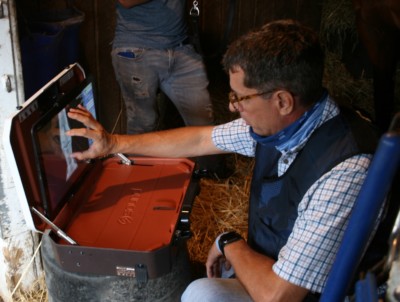Laboratory testing alone cannot be effective in maintaining racing integrity. The RMTC advocates for comprehensive strategies that include surveillance, review of treatment records, premises and vehicle inspections, and analysis of substances and contents of syringes to deter and detect the use of banned substances and to control the use of legitimate therapeutic medications in order to protect safety and integrity in racing and training.
The RMTC provides scientific input and builds consensus among stakeholders for the adoption Model Rules* on a range of subjects including out of competition testing, establishing a list of prohibited substances, implementing controls on the use of corticosteroids and nonsteroidal anti-inflammatory medications and other therapeutic medications, constraining the use of intra-articular injections, prohibiting the use of anabolic steroids, controlling the off-label use of bisphosphonates and other drugs, and establishing regulatory visibility of medication records.
*Model Rules promote uniformity in the regulation of horse racing across North America. The RMTC, or other engaged organizations or individuals, proposes Model Rules to the The Association of Racing Commissioners International (ARCI), a group comprised of representatives of individual states’ racing regulators that engages in collective policy formation. Individual ARCI members advocate for adoption of Model Rules at the State level.


The RMTC participates in site inspections on behalf of the National Thoroughbred Racing Association’s (NTRA) Safety and Integrity Alliance Racetrack Accreditation program to assess a track’s compliance with the NTRA Code of Standards that promotes best practices for racetrack operators. The RMTC assesses racing regulatory veterinarians’ activities including pre-race examination protocols, implementation of injury prevention and mitigation strategies veterinary responses to equine emergencies, control of infectious disease outbreaks, drug testing strategies, activities related to the collection and processing of drug testing samples (in and out of competition) and providing stakeholder education when existing regulations change or new ones are enacted. At these assessments the RMTC is able to advocate for regulatory veterinarians, racetracks, and racing authorities to remedy deficiencies or elevate protocols to Best Practices.
The RMTC participates in domestic and international meetings of racing regulators and other stakeholder organizations. The Executive Director, Board of Directors, and Scientific Advisory Committee Members serve on committees worldwide establishing policy on horse welfare, racetrack veterinary practice, tactical research, prohibited practices, and anti-doping programs.



